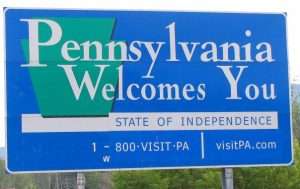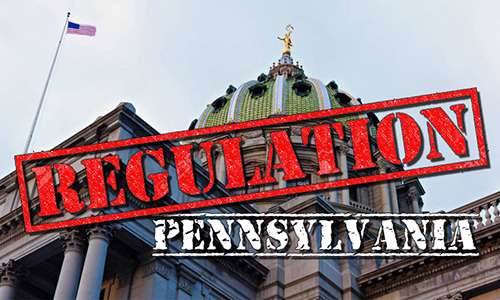Pennsylvania Online Gambling Bill Likely Pushed to 2016
It appears that online gambling may be off the table in Pennsylvania for the time being, though not necessarily for good. According to CardPlayer.com, state Representative John Payne has said that his House Bill 649 will not be dealt with by the state legislature this year, but should be up for a vote in the spring.
HB 649 was introduced by Rep. Payne in February and aims to legalize and regulate online gambling in the Commonwealth, a la Nevada, Delaware, and New Jersey. The state’s dozen brick and mortar casinos would be eligible to apply for a license, while offshore online operators could partner with said casinos in order to participate in the market. One would assume that most of the casinos would apply for licenses if online gambling became legal, as once one does, the others probably wouldn’t want to be left behind. One casino, though – Sands Bethlehem – would likely sit on the sidelines, as it is owned by the Las Vegas Sands Corp. and its Sith master, Sheldon Adelson. Adelson, of course, is the driving force behind the Restoration of America’s Wire Act (RAWA), a federal bill which would make most online gambling illegal.
 The Pennsylvania legislature is a mess right now, as lawmakers have been fighting over the state budget, which is nearly half a year overdue. At the center of the bickering are House Republicans and Senate Republicans, who can’t seem to see eye-to-eye on spending. Senate Republicans produced a $30.8 billion spending package with the collaboration of Democratic Governor Tom Wolf, but House Republicans have rejected it, coming up with their own $30.3 billion plan. One of the key pieces of the Senate GOP’s plan is $350 million in added new education spending, but House Republicans want to see what taxes are going to be raised to help fund it.
The Pennsylvania legislature is a mess right now, as lawmakers have been fighting over the state budget, which is nearly half a year overdue. At the center of the bickering are House Republicans and Senate Republicans, who can’t seem to see eye-to-eye on spending. Senate Republicans produced a $30.8 billion spending package with the collaboration of Democratic Governor Tom Wolf, but House Republicans have rejected it, coming up with their own $30.3 billion plan. One of the key pieces of the Senate GOP’s plan is $350 million in added new education spending, but House Republicans want to see what taxes are going to be raised to help fund it.
The Senate Republicans’ plan includes $1.2 billion in tax increases. It would also reduce 2016 state and school obligated pension payments by $170 million, pushing them out into the future at a higher costs. This part has proven to be (understandably) quite controversial, as it would hurt those relying in the pension in the short-term, while causing the state to spend more in the long-term.
HB 649 passed through the House Gaming Oversight Committee, chaired by Rep. Payne, in November by an 18 to 8 vote. It was supposed to be up for a vote by the full House last week, but it got delayed first because there was still some discussion about possible amendments and now because lawmakers need to focus their attention on the budget mess. Rep. Payne estimates that regulated online gambling could initially inject $120 million into the state’s coffers; long-term estimates have the annual figure as high as $300 million. Operators would be taxed 14 percent on gross gaming revenue and would be required to pay a $5 million licensing fee.
It was thought that the gambling bill might be added to the budget as a way to offset a chunk of spending, but obviously that hasn’t happened. So what is the deal from here? According to the Poker Players Alliance (PPA) and OnlinePokerReport.com (OPR), it is still possible that online gambling could find its way into the budget. Every dollar is important right now, so in the immortal words of Yogi Berra, “It ain’t over ‘til it’s over.”
If the more likely scenario occurs and HB 649 isn’t passed this year, OPR presents two possibilities for online gambling to still spring to life in 2016. The first is that online gambling could still move forward on its own merits, as its own bill, just as it might have been without the budget issues. As OPR’s Steve Ruddock puts it, “Online gambling expansion could be proposed as a way to close a potential budget shortfall if the projections in the 2016 budget don’t line up with the reality on the ground (a not uncommon occurrence), or they could legalize online gambling just for the sake of passing an online gambling bill from a revenue and consumer protection standpoint.”
Essentially, HB 649 still has momentum, having just passed through committee a month ago, so just because the budget fiasco got in the way doesn’t mean the bill disappears. It may just be delayed while state legislators figure out how to come to some sort of budget agreement.
The other possibility, says Ruddock, is that online gambling could still end up in the budget, but without an actual bill to legalize it. Ruddock calls this a “placeholder path” wherein the legislature would essentially say that online gambling will be legalized to help raise revenue, but there just isn’t time to hold votes and discussions about it right now. It would then be prioritized for early 2016. It would be effectively legalized now and officially legalized later.



















COMMENTS